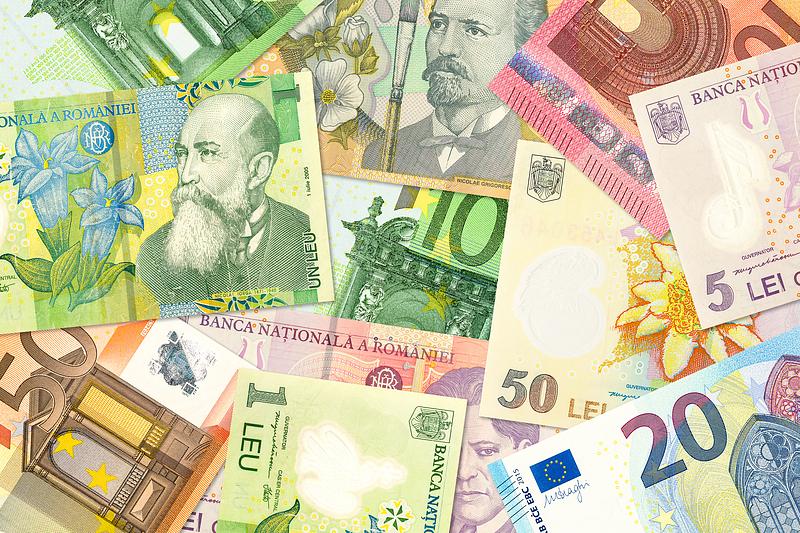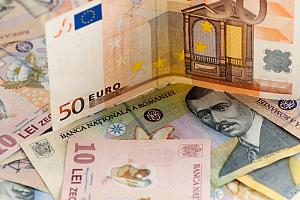Romania’s currency weakens to record low versus the euro

Romania's National Bank (BNR) announced a reference exchange rate of RON 4.8552 for EUR 1 on Monday, September 7, which marks an all-time low for the national currency versus the euro.
Despite reaching a new record, the local currency maintains a positive advance (it has strengthened) in real terms versus the EUR given the differential inflation in Romania compared to the euro area (some 3%).
In the last 12 months, the EUR has strengthened by only 2.6% versus the RON. The fiscal slippage that can't be reversed in the short term is likely to result in the local currency overshooting the balance exchange rate unless the central bank manages a "soft landing" scenario.
The BNR has insisted on nominal exchange rate stability so far. BNR spokesman Dan Suciu, however, implied that the monetary authority is ready to accept a depreciation of the RON - he said that the currency "is slowly seeking a new balance range given the new context."
He argued that the 1.6% weakening versus the euro since the beginning of the year indicates relative stability given the complex economic situation. Suciu also put the recent weakening of the national currency in a regional context, mentioning that the Hungarian HUF lost 8.8% to the euro year-to-date, and the Polish PLN lost 4.5% over the same period.
"If there are no public policy slippages that lead to additional unmanageable expenditures through unsustainable increases in pensions or salaries, the national currency will find its balance relatively quick. [But] if these pressures for more spending continue, the [depreciation] risk increases as well," Suciu explained, quoted by Agerpres.
Prime minister Ludovic Orban toned down the concerns prompted by the new historical exchange rate. He said he was sure the central bank would keep the currency stable, according to News.ro.
Given the lower currency substitution (euroization) compared to 2008-2009, a weaker currency will have a softer impact on the quality of local banks' loan portfolios. But it could significantly impact the public debt, of which only half is denominated in local currency. It is another incentive for the Government to seek ways toward fiscal consolidation quickly after the general elections.
(Photo: Henning Marquardt | Dreamstime.com)
iulian@romania-insider.com













